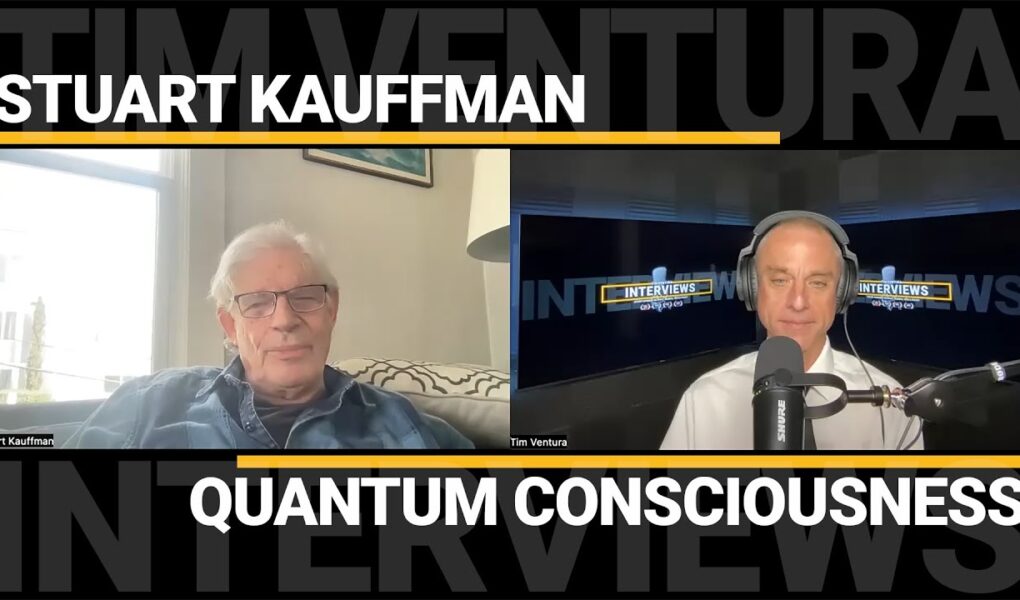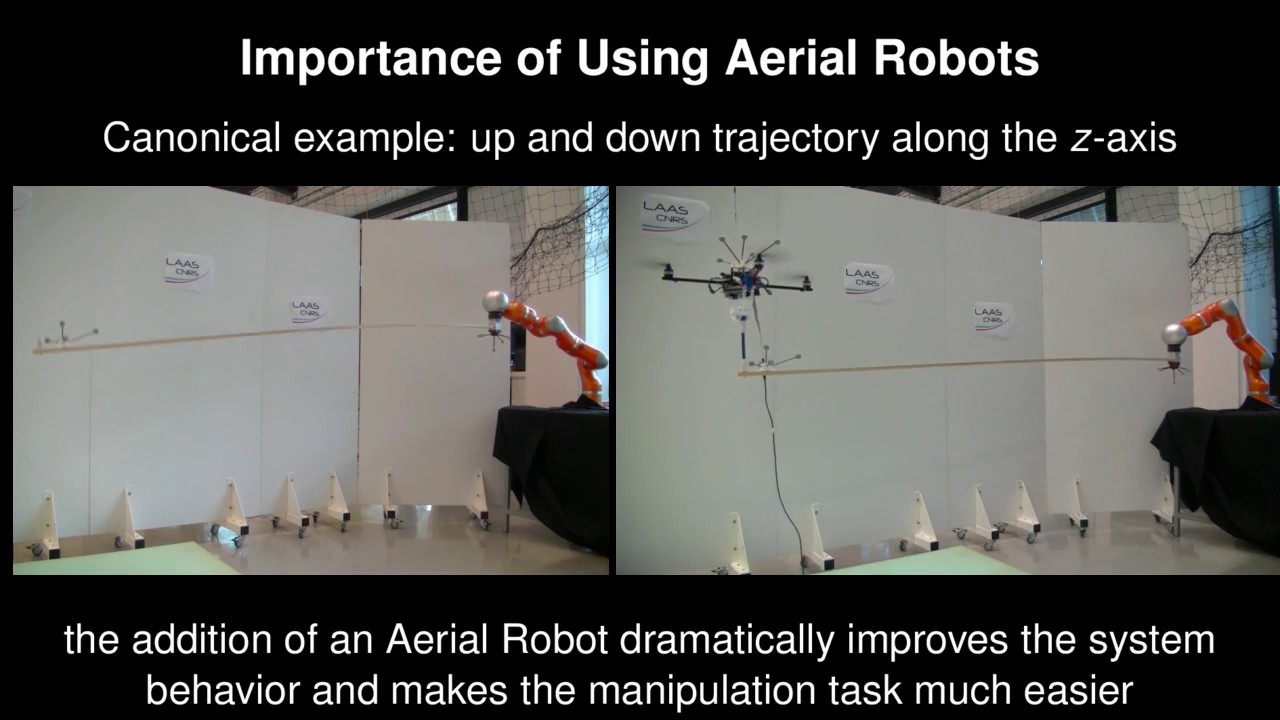Tim Ventura
Dr. Stuart Kauffman discusses non-locality, biological quantum systems, and recent research into PSI phenomena such as telepathy & clairvoyance that suggests they may be quantum in nature.
Dr. Stuart Kauffman, a medical doctor, theoretical biologist, and complex systems researcher who studies the origin of life on Earth.
Dr. Kauffman has been a professor at the University of Chicago, University of Pennsylvania, Santa Fe institute, and University of Calgary. He is currently emeritus professor of biochemistry at the University of Pennsylvania and affiliate faculty at the Institute for Systems Biology. He has been honored with multiple awards including a MacArthur Fellowship and is a Fellow of the Royal Society of Canada.
LINKS & RESOURCES:
Is the brain-mind quantum? A theoretical proposal with supporting evidence
https://arxiv.org/abs/2101.01538
Is The Mind Quantum?
https://psyarxiv.com/qejzr/
Dr. Stuart Kauffman (Wikipedia)
https://en.wikipedia.org/wiki/Stuart_Kauffman
Source




If all is consciousness; mind, but it is separated into physical substance and mind substance, reality is a play of ideas on substance. Rate of vibration would be what separates invisible substance; mind from visible substance; matter. Still it is all the same consciousness but vibrating at different rates.
There is a misunderstanding about the consequences of Bell’s theorem and that is that he proved not only non-locality but also the completeness of quantum mechanics and thus the absence of hidden variables. The latter is not true and Bell himself acknowledged that.
Fascinating talk!
french top quantum physicist Philippe Guillemant is already well.advanced in this
It is possible to verify that quantum reality not only occurs in non-ordinary states of consciousness, but also in dream states and states of self-organizing imagination, even in habitual ordinary reality. Only in this ultimate state of consciousness are we unaware of the quantum reality that is operating at levels of pre-objective perception in infinitesimal periods of time.
Each of these wave-particles contains in its structure the universe of information, like a piece of hologram in which all the information of the entire plate is displayed. If we could observe this wave-particle, without altering its content, all the infinite information involved in it would surely emerge and unfold from it. But there is a way: quantum consciousness. Consciousness has the particularity of acting in uncertainty and its state must be altered in order to connect with the quantum world without producing a change to the wave-particle, thereby allowing it to extract information involved in it. In order to connect consciousness with the wave-particle, it must be “attracted” using an attractor (intention) maintained for a certain time until the deployment of quantum reality imprinted in quantum space emerges. It is a Reality Movement.
For all this, I agree with Kauffman's theory because through processes of non-local self-organizing imagination, one accesses the complex quantum field where identity, space and time are transcended in a state of eternal present.
23:28 mind converts possibles to actuals
33:59 If interested in conductive proteins (not a physicist & I don't know how that relates to quantum consciousness), I would suggest looking into perineuronal nets (PNN). They are not part of cells, but are specialized extracellular matrix that surround neurons. They can limit plasticity, but also protect from exposure to ROS & toxins. I have wondered if PNN could enhance propagation of brain waves. I don't know if PNN are conductive, just that the proteins in PNN seem similar to those in shark electrosensory organs (ampullae of Lorenzini, AoL). Interestingly, the conductivity of AoL jelly is due to proton conductivity – again, something I know almost nothing about.
Yeah having these on Spotify and apple podcast app would be great to listen just to audio while on my work commute.
Great podcast!
Existence is a dream simulation of a story authored and perfectly simulated by God. First seven prime numbers squared added up equals 666. “What will it be to be being human (hues of Man)? -Talmud, Avoth 5:1 Ten divine words from which all of creation proceeds. (Name of the beast) The Alpha and Omega, beginning and end of all things.
"Needs to do more of those experiments, and they're cheap".
No reason we aren't speeding ahead and doing them then.
The dead weight of mainstream 'science', rhat forbids, ESP/telepathy, what ever you want to call it.
Please stop, you won't prevent these phenomena becoming known!!!
Some young lady was being intoduced as being Autistic / Asperger's, years ago, she asked, "Do our minds control the weather?"
I knew it then, Yes
I am wondering what Roger Penrose would say about the views presented here
Tim, curious if you see an overlap between this thesis and the gateway experience, remote viewing ? It feels like they are all linked in some way. Thoughts ?
TkU Tim! I simply can't get enough! Every guest is my fav. Dr. Kauffman you are a treasure, what can I say?🙏💜
Damn you Tim, I have seen and filmed ufos thirty years ago in my twenties. I had a frenetic interest that waned with the passage of time but then you came along with sophisticated analysis and intelligent guests that bypass this "threat commentary" presently fashionable to re-generate interest in UFO’s in me again and boy I have been sucked back in to this painful angst of why they don’t communicate with us.? I have no need of officialdom pronouncements, I know what I saw – I am interested in their technology only so as to connect with all that exists in the universe – but again why the delay in interaction? And not the usual prosaic explanations ..some of us are ready surely?
At night, the soul leaves the body like we leave the car in the garage. Consciousness is at the limit of body and soul. It is at the limit between the material and the immaterial. Our brain represents only 2% of our weight but uses 20% of our energy. It is possible that, at night, our neurons process the brain's energy and generate consciousness. It is this increase of consciousness that will help us solve our problems the next day.
This is part of a more general process in nature. The plants associate minerals and the sun's light to make food for the animals. We extract energy from that food to generate consciousness. What is the next step? What happens to the consciousness that we generate. There must be a link between energy, consciousness and sleeping. The NDE experience is at the center of this connection.
https://youtu.be/7B7Sfb7-AH8
eric weinstein is officially knocked out of first place for snobbiest physics guy on the internet…
Matt?
I was surprised to hear Mr. Kauffman say the double-slit experiment was only done 28 times with intention applied. The double-slit experiment experient been done thousands of times. Not only by Dr. Radin, but many more researchers.
Dr. Radin speaks about the experiment in his video "Consciousness and the Observer Effect." https://www.youtube.com/watch?v=hB_2Qd5xNvE&list=PLmxXQfMFe0sV0Nd_0x0e1-fdobCF4kwDY&index=7
BTW Dr. Radin's book "Real Magic" is an eye opener on the topic of meta-physics and related topics.
Entelechy is a philosophical concept that originated in ancient Greek thought and has been used by various philosophers throughout history. At its core, entelechy refers to the idea of an inner potential or driving force that moves things toward their natural end or goal.
The term "entelechy" was first used by Aristotle, who believed that everything in nature has an inherent potential or goal that it strives to achieve. For example, an acorn has the potential to become an oak tree, and it will naturally strive toward this goal if given the proper conditions and environment.
The concept of entelechy was later developed by the German philosopher Gottfried Wilhelm Leibniz, who used it to describe a pre-existing inner principle that determines the nature and behavior of all things. According to Leibniz, this inner principle is what gives a thing its identity and makes it what it is.
In modern times, the concept of entelechy has been used in various fields, including psychology and biology. The psychologist Carl Jung, for example, used the concept of entelechy to describe the inherent potential for growth and development within the human psyche. Similarly, the biologist Hans Driesch used the concept of entelechy to describe the innate developmental potential within living organisms.
Overall, the concept of entelechy emphasizes the idea that everything in nature has a purpose or goal that it naturally strives toward. It suggests that there is an inner driving force within all things that moves them toward their natural end or potential, and that this force can be harnessed and understood through careful observation and study.
What is the definition of zero in math?
Zero is the integer denoted 0 that, when used as a counting number, means that no objects are present. It is the only integer (and, in fact, the only real number) that is neither negative nor positive. A number which is not zero is said to be nonzero. A root of a function is also sometimes known as "a zero of ."
Any non-zero number to the zero power equals one.
Zero to any positive exponent equals zero.
Zero is the subject where counting numbers are the objects.
[Subject]:
a thinking or feeling entity; the conscious mind; the ego, especially as opposed to anything external to the mind.
the central substance or core of a thing as opposed to its attributes.
[Object]:
a thing external to the thinking mind or subject.
Synchronicity phenomenon is probably the handshake of those 2 surfaces or mouths horizons connecting.
I could listen to this all day! Absolutely fascinating!
I used to think my mind was a quantum superposition, but then I changed my mind. Now I'm not sure what state it's in
Tim Ventura should have a million subscribers at least.
So then….consciousness, not space-time or matter, is the most basic building block of the universe(s)? And therefore, many of the phenomena mentioned are usually outside the convention sensory apparatus of humans? Like a dog whistle that Rover can hear easily and I can't? Unless….
Another great episode Tim! I think I've heard you say in other episodes that you're a geneticist and I know you're a Sci fi fan. I'd love to see an episode on bioengineering on humans and implications regarding career choices/ social status. I'm thinking of the 12 fingered pianist from Gattaca. What if one day someone engineers their kid to have 2 extra arms to pilot the new starship we are building, but the kid grows up and chooses something else?
Also, Tim's warm and acknowledging way of introducing his guests is also enjoyable.😊
God within all through all
Incredible.
Great interview Ted
fantastic… I'm of to jury rig the coffee machine using my brains deductive connections…the question is… will it work or is it dead. no chat gpt can tell me. glad we are quantum .. thought provoking interview. thanks Tim.
Extremely interesting. And so disturbing to hear that mainstream scientific circles still mostly seem to scoff at the idea. Hey, Einsteins, the lot of you have absolutely zero clue what consciousness is – so why not be open to ALL possible explanations. To admit lack of knowledge is the first step towards knowledge. But obviously this simple principle threatens a lot of "scientists"' ego and/or pay.
Fabulous Tim as always😊. Some of that went over my head. But my thought is reality is possibly just one side of the coin & uses 5 senses. Our 6th & possible other senses most cannot access is possibly on the other side of the coin. No matter the current science, we wont unlock it unless something allows access to what appears to be switched off. Evidence that that sense may exist is telepathy/remote viewing, sauvantism etc. But, something IS there its just getting to it….
Thanks for another great episode Ted – 30 years ago, Kauffberg's At Home in the Universe was a transformative read for me and highly inspirational in coming to terms with natural information processing in complex self-organising thermodynamic systems. That is, it helped me feel at home as a determinist, to come to peace with the causality violation that would be true free will – such power of agency as to constitute a first cause. Acausal determinants are an oxymoron, a contradiction in terms, and there can be no paradoxes. This same rationale would equally apply to a strict Copenhagian interpretation of reality – if our base impetus were stochastic and essentially random, as Steven notes, that's not control either – not autonomy, self-determination, or meaningful free will. But recognising that free will is an inherently unfalsifiable hypothesis in the first place, hence not even credible as a scientific theory in the Popperian sense, we can leave aside that whole can of worms and just focus on the mind-body problem; mind is obviously the activity of brain, brain is modular and faculties can be lost via damage, proving that our perception of unity of mind underpinning the plausibility of a transcendant soul is illusory, and in reductio ad absurdum would lead to minefields of contradictions (ie. are lost faculties regained in the next life and what are the thresholds re. age of injury vs congenital defects etc.?). This whole "consciousness is primary" guff popularised by the likes of Donald Hoffstein is a populist cult, i'm sorry, but i'm just saddened to see they've ensnared someone so influential in my own journey as Steve Kauffman himself. The mind-body problem is more generally dealt with in terms of the binding problem – the common encoding principles that must unite all modes of sensation, motor control and other faculties. One of the most fundamental dichotomies is between primary sensory information and meta-information – the information about the stimuli that stitches the bigger picture together providing context and meaning. The way we encode this meta-information involves a nexus between thermodynamic, informational and network entropies (connective, impulse rate etc.), in turn giving rise to the emergence of certain homeostatic equilibria, such as the percept of rhythm induction in the temporal domain, or octave equivalence – and thus harmonic consonance and dissonance – in the spatial domain. In short, Kauffston seems to be joining the likes of Roger Penknife et al with his infamous quantum-coupling in microtubules theory – the man who's insights helped me mechanise the maths of consciousness, now throwing in the towel in deference to ghosts in the machine.. Still, great interview all the same, thanks again Todd.
ETA: oops i meant 'Tom' obviously.
Tim’s casting this one from the bridge of the UFO… 🛸
Two great podcasts on quantum consciousness both by a guy named Stuart!
Let him go for 4 hours and just cut them up in different segments
Great show Sir